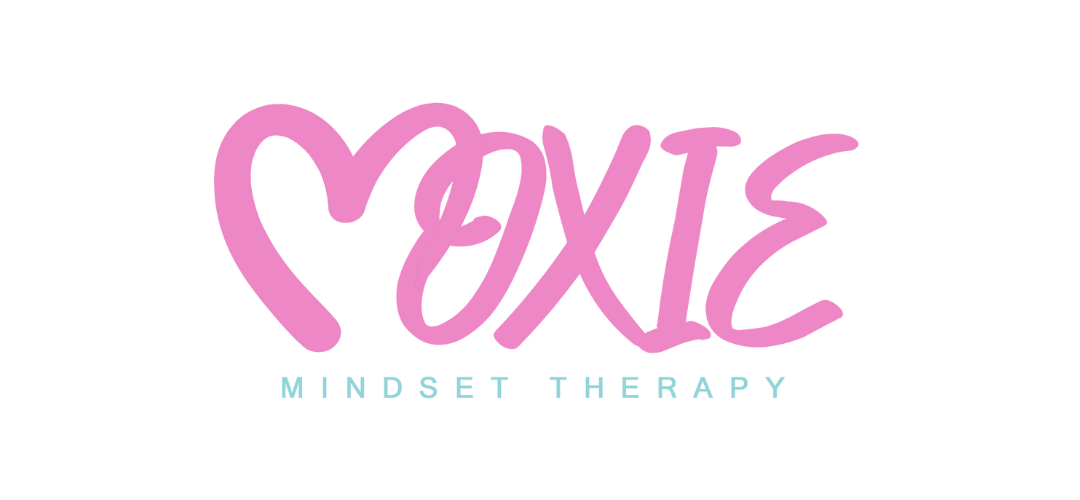Moxie Mindset Therapy
Areas of Speciality
EMOTION MANAGEMENT
Identifying and understanding your emotions, feeling them, and letting them go.
Many high-achieving individuals face challenges in their relationship with emotions. Often, this stems from harmful beliefs about emotions and expressing them. Instead of addressing emotions, there is a tendency to suppress them altogether, making it more overwhelming and challenging to develop a healthier connection with oneself. As we access your moxie within, I will help you form a deeper relationship with your emotions.
MY APPROACH:
My approach involves exploring your relationship with emotions, including how primary caregivers/parents modeled expressing emotions. For example, did you only see your parents express emotion when it was explosive? Or did you observe them expressing themselves in healthy, understanding, and judgment-free ways?
We will explore how others responded to you when you expressed emotions throughout your childhood and teenage years and what messages or beliefs this reinforced about your relationship with emotions. After developing an understanding of your history with emotions, we’ll use different skills that will support you in identifying them, understanding them, feeling them, and letting them go to help you develop a more productive and healthier relationship with your emotions.
RELATIONSHIPS
Developing more quality relationships
starts with you.
In the pursuit of achieving ambitious goals, high-achievers tend to have difficulty navigating different types of relationships. For some, perfectionism may lead to unrealistic expectations for themselves and others, building tension in their relationships. For others, it could be self-doubt and fear that they might not meet the high standards they set for themselves, leading to seeking constant validation. At Moxie Mindset Therapy, fostering more quality relationships starts with YOU.
MY APPROACH:
We will explore your attachment styles and boundaries. This will help us understand your history and how your relational needs and wants can be met to make the changes you’d like to develop more quality relationships.
TRAUMA
Live the life you want rather than feeling like you’re stuck in a trauma response.
In overcoming the impact of past trauma, individuals may face the aftermaths of rough childhood or life events, often filled with emotional, verbal, and sometimes physical abuse, usually coming from family members or other individuals who had a role of authority. It takes time and willpower to unlearn the ingrained survival behaviors you might have developed, like shrinking oneself or assuming caretaker roles for other people. I will support you in overcoming the past experiences that hinder your present success and help you live the life you want.
MY APPROACH:
My approach involves utilizing EMDR, Somatic approaches, and Sensorimotor Psychotherapy. These different evidence-based approaches provide a holistic approach to trauma. Since trauma and emotions are felt and stored in the body, we will focus on developing more awareness of what’s happening within your body using somatic approaches.
Sensorimotor psychotherapy techniques will help to strengthen the connection between the mind and body, supporting more cohesiveness between the two. EMDR will support the healing powers of your brain to help reframe critical thoughts, beliefs, or unresolved emotions from past traumatic experiences to help you live the life you want rather than feeling like you’re stuck in a trauma response.
OBSESSIONS & COMPULSIONS
Explore who you are outside of intrusive thoughts and acts, re-writing a narrative more aligned with your authentic self.
Living with obsessions and compulsions can feel like navigating a minefield of challenges daily. Persistent intrusive thoughts may be different for everyone. To some, it can be fears of contamination; to others, it can be worries of causing harm to a loved one. These may trigger intense anxiety and demands that can only be relieved by ritualistic behaviors, which add an extra layer of stress and disrupt your daily life. I will help you explore, navigate the hurdles, and build resilience as you realign with your moxie—your most authentic self.
MY APPROACH:
I utilize Inferential Cognitive-Based Therapy (I-CBT) and Exposure and Response Prevention (ERP). These evidence-based approaches will help you make space in your life for the things you enjoy by supporting you in managing intrusive thoughts and compulsions. By using I-CBT, we will explore and understand the rationale that is used for intrusive and obsessional thinking and the narrative that is developed from this rationale. After exploring who you are outside of your intrusive thoughts and acts, we will practice re-writing that narrative to be more aligned with your authentic self.
ERP will be used to change how perceived threats are experienced with the intent of facing your fears on purpose so they don’t disrupt your life. For example, suppose there is a strong fear of contamination. In that case, we will create a list of situations where this fear can be safely encountered so there is an opportunity to learn that this isn’t as much of a threat as the intrusive, obsessive thoughts want you to believe.
BODY-FOCUSED REPETITIVE BEHAVIORS (BFRBs) - such as Trichotillomania and Skin Picking
Break free from the cycle and work towards a more balanced and fulfilling life.
Body-focused Repetitive Behaviors (BFRBs) like Trichotillomania and Skin Picking involve a daily battle that is driven by stress or anxiety. More than the impact on one’s appearance, the aftermath may infiltrate your daily activities, foster feelings of shame, strain relationships, and place you further away from your desired life. At Moxie Mindset Therapy, I will empower you to overcome the battle against your urges and guide you in your healing journey.
MY APPROACH:
Utilizing ACT Enhanced Behavior Therapy Approach. These evidence-based interventions will increase awareness of engaging in BFRBs, practice competing responses that prevent the BFRB from continuing, and skills that will support you in being successful with both awareness training and competing responses.






